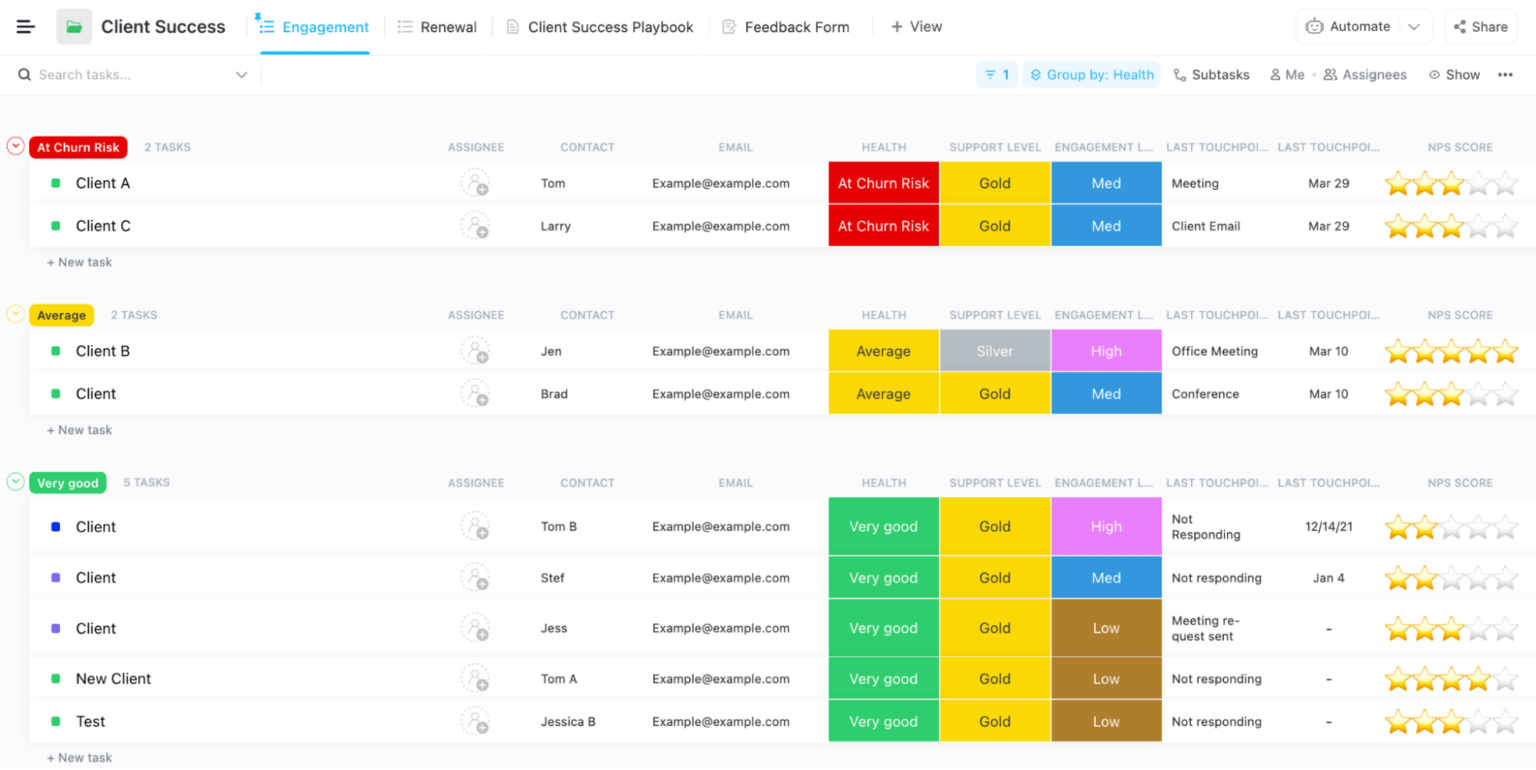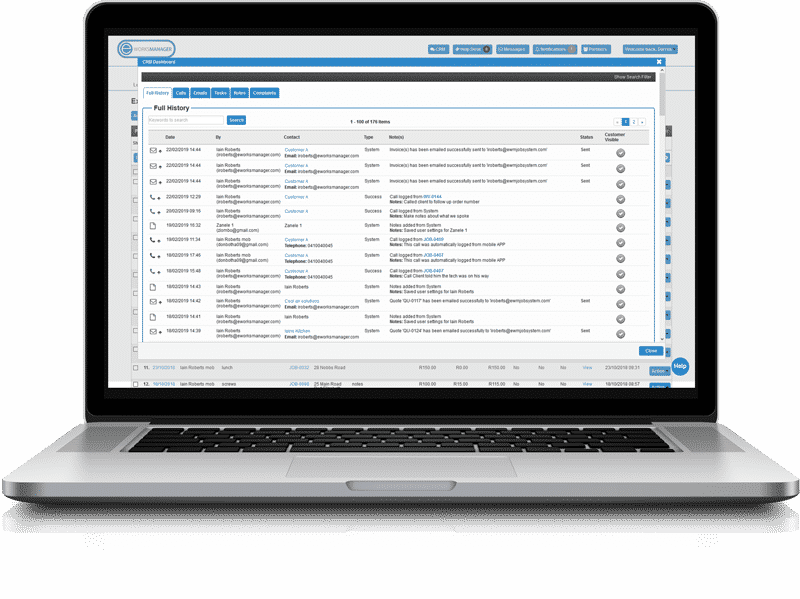In today’s competitive business landscape, CRM manager software has emerged as a game-changer, enabling organizations to revolutionize their customer relationships and drive operational efficiency. With a focus on seamless contact management, lead tracking, and robust analytics, CRM systems have become indispensable tools for businesses seeking to elevate their customer engagement strategies.
As we delve into the intricacies of CRM manager software, we will uncover its key features, explore the tangible benefits it offers, and provide practical guidance on selecting and implementing the right solution for your organization’s unique needs.
Introduction
Customer relationship management (CRM) manager software is a tool that helps businesses manage their interactions with customers. It provides a central repository for customer data, including contact information, purchase history, and support interactions. This data can be used to track customer behavior, identify trends, and improve customer service.
CRM systems are essential for businesses of all sizes. They help businesses to:
- Improve customer service:CRM systems provide a central repository for customer data, making it easy for customer service representatives to access the information they need to help customers.
- Increase sales:CRM systems can help businesses identify sales opportunities and track the progress of sales pipelines.
- Improve marketing:CRM systems can help businesses target their marketing efforts and track the effectiveness of their campaigns.
- Increase efficiency:CRM systems can help businesses automate tasks and streamline processes, saving time and money.
Features of CRM Manager Software

CRM manager software offers a range of features that enhance the efficiency and effectiveness of customer relationship management processes. These features include:
- Contact management:CRM software centralizes customer information, including contact details, demographics, and interaction history, in a single, accessible location.
- Lead tracking:Lead management features help track potential customers through the sales pipeline, from initial contact to conversion.
- Opportunity management:Opportunity management tools enable sales teams to track and manage potential sales opportunities, monitor progress, and close deals.
- Customer service:CRM software includes customer service features that streamline support processes, track customer inquiries, and resolve issues efficiently.
- Reporting and analytics:Reporting and analytics capabilities provide insights into customer behavior, sales performance, and other key metrics, enabling data-driven decision-making.
Benefits of Using CRM Manager Software
CRM manager software offers a wide range of benefits for businesses, including improved customer relationships, increased sales productivity, better decision-making, and reduced costs.
By centralizing customer data and automating tasks, CRM manager software helps businesses to:
Improved Customer Relationships
- Gain a 360-degree view of each customer, including their contact information, purchase history, and support interactions.
- Personalize marketing and sales campaigns to each customer’s needs.
- Provide better customer service by tracking and resolving customer issues quickly and efficiently.
Increased Sales Productivity, Crm manager software
- Manage sales pipelines more effectively, from lead generation to close.
- Automate sales tasks, such as sending follow-up emails and scheduling appointments.
- Track sales performance and identify opportunities for improvement.
Better Decision-Making
- Access real-time data on customer behavior, sales performance, and marketing campaigns.
- Generate reports and dashboards to identify trends and make informed decisions.
- Use predictive analytics to forecast future sales and customer behavior.
Reduced Costs
- Automate tasks and streamline processes, reducing the need for manual labor.
- Improve customer retention and reduce churn, saving on marketing and sales costs.
- Make better decisions, leading to reduced waste and increased profitability.
Considerations for Choosing CRM Manager Software
![]()
When selecting CRM manager software, several factors should be considered to ensure it aligns with your business requirements and objectives. These factors include:
Business Size and Needs
The size of your business and the specific needs of your team will determine the features and capabilities required in a CRM manager software. Small businesses may only need basic contact management and sales tracking, while larger enterprises may require advanced features such as marketing automation, customer segmentation, and analytics.
Industry-Specific Requirements
Different industries have unique requirements for their CRM systems. For example, a healthcare provider may need software that can manage patient records and appointments, while a financial services company may require software that can track investments and client portfolios.
Budget
CRM manager software can range in price from free to thousands of dollars per month. It’s important to set a budget before you start shopping for software to avoid overspending.
Integration with Other Systems
If you use other business systems, such as accounting or email marketing software, you’ll need to make sure that the CRM manager software you choose can integrate with them. This will allow you to share data between systems and avoid duplicate data entry.
Implementation of CRM Manager Software

The implementation of CRM manager software involves a series of steps to ensure a successful and efficient rollout. These steps include planning, data migration, training, and go-live.
Planning
Planning is the foundation for successful CRM implementation. It involves defining the project scope, objectives, and timeline. The planning phase includes:
- Identifying the business requirements and goals for CRM
- Selecting the right CRM software that aligns with the business needs
- Creating a project plan that Artikels the implementation timeline and responsibilities
- Establishing a budget for the implementation and ongoing maintenance
Data Migration
Data migration is the process of transferring existing customer data from legacy systems or spreadsheets into the new CRM system. It is important to ensure data accuracy and completeness during this process.
- Identifying and cleaning the data to be migrated
- Mapping the data fields from the old system to the new CRM
- Performing data validation and testing to ensure data integrity
- Developing a rollback plan in case of any data migration issues
Training
Training is crucial for ensuring user adoption and proficiency in using the CRM software. It involves providing comprehensive training to all users, including:
- Overview of the CRM system’s features and functionality
- Hands-on exercises and simulations to practice using the system
- Customizing the CRM to meet specific business needs
- Ongoing support and resources for users after the implementation
Go-Live
Go-live is the final step in the CRM implementation process, where the system is officially launched and becomes operational. It involves:
- Deploying the CRM software to the production environment
- Monitoring the system’s performance and resolving any issues
- Providing ongoing support and maintenance to ensure the system continues to meet business needs
- Continuously evaluating the CRM’s effectiveness and making adjustments as necessary
Best Practices for Using CRM Manager Software

To maximize the benefits of CRM manager software, it’s crucial to adopt best practices that enhance its functionality and effectiveness. Here are some key recommendations:
Data Hygiene
Maintaining clean and accurate data is essential for the success of any CRM system. Regularly review and update customer information, remove duplicates, and ensure consistency across all data fields. This will improve the quality of your data, leading to more accurate reporting and analysis.
Process Automation
CRM manager software offers powerful automation capabilities that can streamline your workflows and save time. Identify repetitive tasks that can be automated, such as sending follow-up emails, scheduling appointments, or generating reports. By automating these tasks, you can free up your team to focus on more strategic initiatives.
Reporting and Analysis
CRM manager software provides robust reporting and analysis tools that enable you to track key performance indicators (KPIs) and gain valuable insights into your sales pipeline, customer behavior, and overall business performance. Regularly review these reports to identify trends, areas for improvement, and opportunities for growth.
Trends in CRM Manager Software
The CRM manager software market is constantly evolving, with new trends emerging all the time. Some of the latest trends include:
Artificial Intelligence (AI)
AI is being used in CRM manager software to automate tasks, improve customer service, and gain insights into customer data. For example, AI can be used to:
- Qualify leads and prioritize sales opportunities
- Automate customer service tasks, such as answering questions and resolving issues
- Analyze customer data to identify trends and patterns
Cloud-based Solutions
Cloud-based CRM manager software is becoming increasingly popular because it is more affordable, scalable, and accessible than on-premises solutions. Cloud-based CRM software is also easier to use and maintain, as it is managed by the vendor.
Mobile CRM
Mobile CRM software allows sales reps to access customer data and manage their sales activities from anywhere. This is important in today’s mobile world, as sales reps are increasingly working from outside the office.
Final Conclusion: Crm Manager Software
In conclusion, CRM manager software has become an indispensable asset for businesses of all sizes, providing a comprehensive platform to manage customer interactions, optimize sales processes, and make data-driven decisions. By embracing the latest trends and best practices, organizations can harness the full potential of CRM systems to build stronger customer relationships, increase profitability, and achieve long-term success.
FAQ Section
What are the key benefits of using CRM manager software?
CRM manager software offers a wide range of benefits, including improved customer relationships, increased sales productivity, better decision-making, and reduced costs.
How do I choose the right CRM manager software for my business?
When choosing CRM manager software, consider factors such as your business size and needs, industry-specific requirements, budget, and integration with other systems.
What are the best practices for using CRM manager software?
Best practices for using CRM manager software include maintaining data hygiene, automating processes, and leveraging reporting and analysis to gain insights and improve performance.